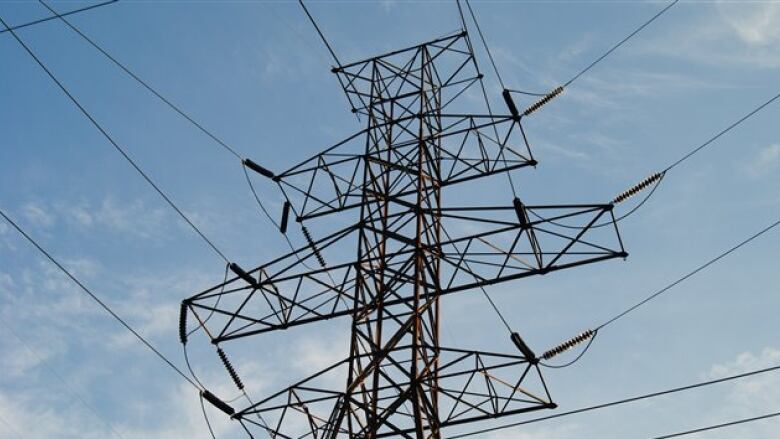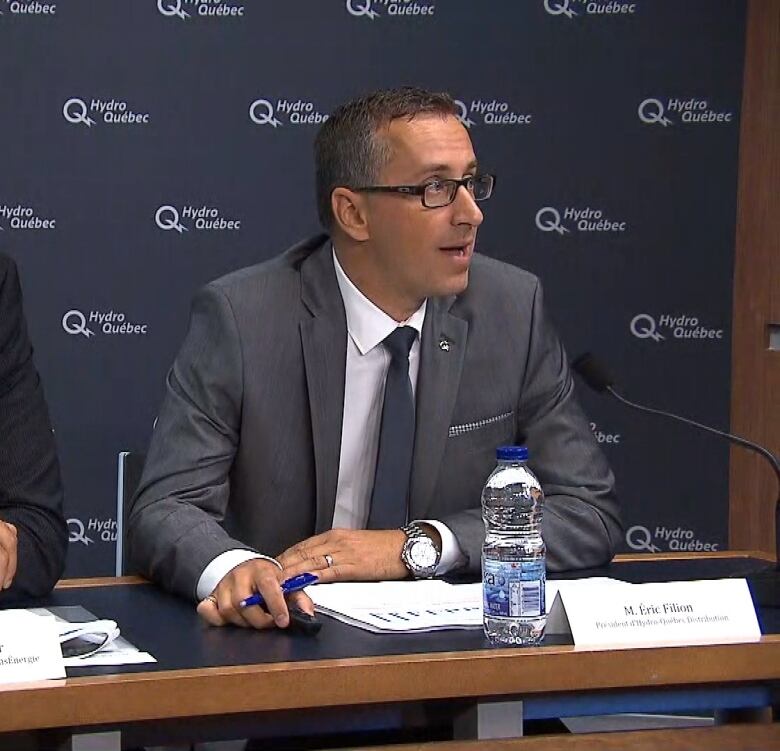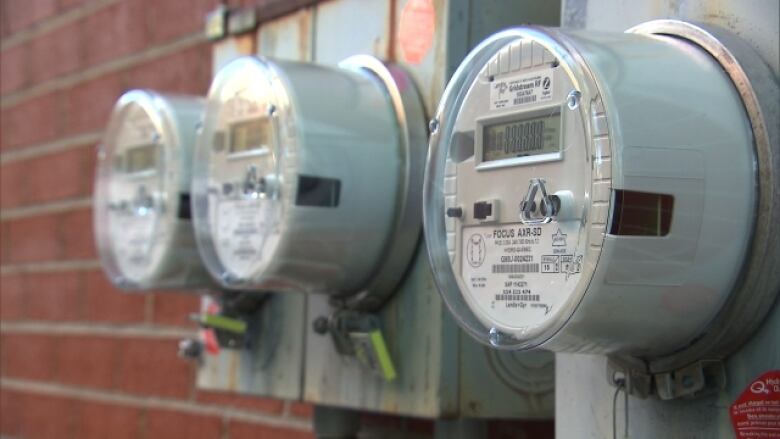Hydro-Qubec's new variable rates could save customers $150 a year, utility says
Quebec's energy board must approve request for .8% rate hike, new pricing plan, starting April 2019

Hydro-Qubec is seeking a 0.8-per-cent rate hike starting next April 1, but it promises if they want them, consumers will be able to getrebates of between $30 and $150, thanks to the utility's proposed "variable pricing" program.
In announcing its annual request for a rate hike Friday, Hydrostressed thatthe proposed increaseremains below the projected inflation rate.
"This is the fourth consecutive year our application [for a rate increase]is below the rate of inflation," ric Filion, the recently appointed president of Hydro-Qubec Distribution, told reporters.
Option to reduce peak-period use
The new twist is a voluntary program to reward consumers for reducing their power consumption during peak periods.
The plan is for theutility toinform participantsby text messages, during the peak demand periods of winter, when they should reduce consumption.
Electric heating accounts forhalf a household's total consumption, soHydro-Qubeccould suggest turning down the thermostat at those times.

Other major electricity-consuming activities, such as doing the laundry,dishwashingor taking a shower, could be put off to non-peak hours.
"It will depend on the actions of the consumer to reduce their consumption,"Filionexplained.
The utility expects as many as 20,000 clients will opt to sign up for the variable-pricing option in the program's first year.
Reduce need to import power
In addition to saving money for its customers, Filion said,variablepricing would allow Hydro-Qubec to reduce expensive purchases of energy from utilities in neighbouring states and provinces.
"It's win-win," Filion said.
Consumers can choose between two options.
Option 1 offers a 50-cent-per-kWhcredit in thewinter period from November to March, if the consumer takes steps to reduce electricity consumption in peak hours, in response to a text message from Hydro-Qubec.
Peak energy consumption hours in Quebec arefrom 6 a.m. to 9 a.m., and from 4 p.m. to 8 p.m.

Option 2 offers a 2-cent-per-kWhdiscount in winter. Customers would pay about 6 cents perkWhrather than the average 8-cent-per-kWh rate for the winter months.
But Option 2 also calls for paying 50 cents per kWhon the first 100 hours of winter consumption.
The 50-cent charge would be a clear incentive to reduce consumption or to shift consumption to the cheaper off-peak hours.
Filion said under variable pricing, turning down the thermostat by one degree would result in a $75 saving. A two-degree reduction would save $150 over the winter season.
Smart meters providedetailed usage data
The variable-pricing optionHydro-Qubecis proposing is madepossible because of the utility's new generation of smart meters.
The old meters only measured total electricity consumption.
The new meters can tell precisely how much electricity a client is consuming and when.
Both the rate increase and the dynamic pricing proposalmust be approved by Quebec's energy board, the Rgie de l'nergie du Qubec.
The board is an autonomous provincial regulatory body that does not always grant Hydro-Qubec the rate increases it seeks.
Last year Hydro-Qubec sought a 1.1-per-cent increase. The boardruled that increase was not justified, holding down its 2018 hike to 0.3 per cent.
Hydro-Qubec says the 0.8-per-cent increase is needed to upgrade its transmission and distribution network and applyingmeasures, such as tree trimming, to minimize power outages.
As well, the utility anticipates a 4.1 terawatt-hour increase in electricity sales in 2019-2020, representing 1.1 TWhs for households, 1.4 TWhs for commercial customers and 1.6 TWhs for industrial projects, such as mines.
A terawatt-hour is a billion kilowatt-hours.
Still the lowest rates in North America
Filionsaid without the proposed rate increase, the utility would lose $84 million in 2019-2020, based on anticipated revenues of $12.2 billion.
He did note thatHydro-Qubecoffers the lowest hydro rates in North America.
In Ontario, consumers pay almost twice as much and residents of Boston and New York pay four times as much for electricity as Montrealers.
Filion defended the utility's rate increases, saying over the last 20 years, hydro rates in Quebec have risen by 26 per cent, while of the consumer price index, measuring inflation, has risen 40 per cent and the pump price of gasoline is up 82 per cent.
Sensitive to the energy board'scriticism, Hydro-Qubec is ready to work out flexible payment plans for consumers with economic difficulties and offers them energy efficiency options as well.
The regulatory approval process for the rate hikes and the variable pricing plans begins with a period of detailed analysis by the Rgie, followed by public hearings, and deliberations by the Rgie, ending in February.
Hydro-Qubec expects a decision by March 2019.












_(720p).jpg)


 OFFICIAL HD MUSIC VIDEO.jpg)
.jpg)



























































































